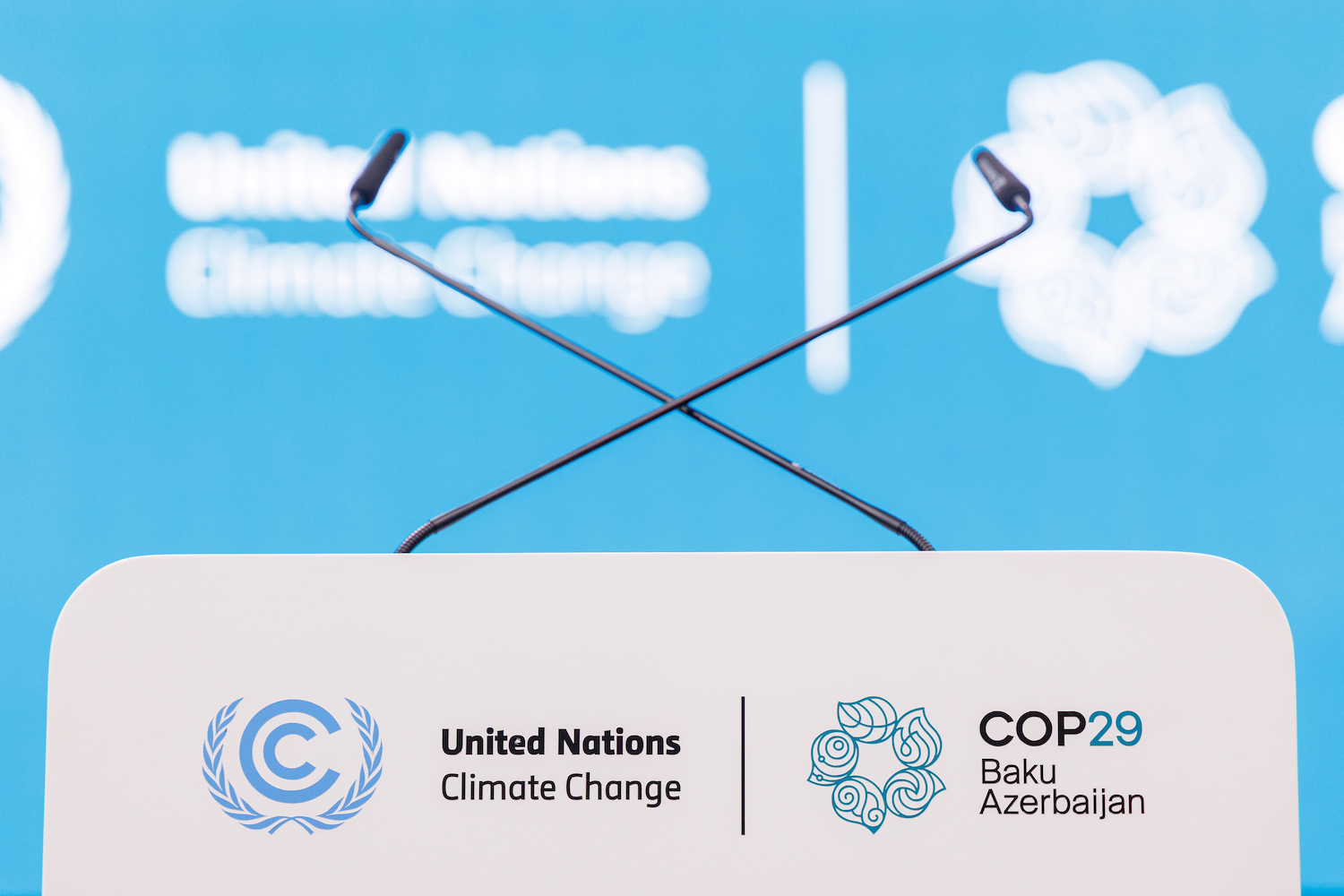The world’s leading climate diplomats, scientists and policy experts convene in Baku, Azerbaijan, this week to begin the 2024 United Nations Climate Change Conference (COP29).
Framed as the “finance COP”, this year’s summit will be defined by negotiations around the amount of public money dedicated to tackling climate change.
Less remarked on, but by no means less important, is the issue of corruption that threatens to undermine the integrity of this year’s entire conference.
Corruption may not be the first thing that comes to mind when considering the fight against climate change – but it should be. For the second year in a row, COP will be hosted by a petrostate.
The implications of this – not just for COP29, but all future COPs – are profound. The global fight against climate change is becoming dangerously compromised, threatening to make COP itself irrelevant.
Our new report with the Anti-Corruption Data Collective (ACDC) investigated the many clear signs of potential corruption in the lead up to Baku. We found that this year’s summit risks being co-opted by a fossil fuel industry whose interests run counter to those of the United Nations Framework Convention on Climate Change (UNFCCC) but clearly benefit those of the family of Azerbaijan’s authoritarian president.
Preserving COP’s Purpose
If you’re wondering why this is the first time you’ve heard about this, it might have something to do with the massive public relations campaign Azerbaijan has embarked on to sanitise its international reputation. At almost $5 million, the money spent on its PR campaign rivals the $5.8 million paid by the country to UNFCCC to host the conference itself.
A fortnight ago, Global Witness uncovered 71 suspicious X accounts that appear to have been artificially manipulating COP29 content on the platform by sharing pro-regime narratives. This PR effort contrasts sharply with the severe repression of independent media and civil society that dare to criticise Baku’s human rights abuses and kleptocracy.
In the absence of robust integrity and conflict of interest management measures, this year’s COP is in real danger of being co-opted by the government as diplomatic cover to advantage its domestic oil and gas interests. Unless and until protections are put in place, there’s nothing to stop the same thing from happening at every COP.
To preserve COP’s purpose, we must take bold steps to uphold its integrity. This must include strengthening the decision process around host nations by ensuring that only countries who have been vetted by the Bureau of the COP, and whose proposal aligns with the Paris Agreement, can be considered.
Another important step would be mandating that host deals involving corporations and organisations granted Green Zone partner status must be published on the UNFCCC website to allow for public scrutiny of all financial relationships. The UNFCCC should also establish clear guidelines on how the COP brand is used in host country initiatives to ensure it’s not used to endorse solutions which serve fossil fuel interests.
Real progress on climate cannot be achieved without tackling corruption. From influential fossil fuel lobbyists diluting climate commitments to corrupt networks syphoning climate funds, the trust and integrity of the entire global climate framework is at stake.
Unless we confront this issue head-on, the relevance of COPs will wither. Bold and uncompromising action from the international community, spearheaded by the UNFCCC, is needed. Anything less, and COP will fail in its mandate to lead the world toward a sustainable future.
Brice Böhmer is the climate and environment lead at Transparency International
Subscribe to our newsletter
Stay up to date with DeSmog news and alerts







